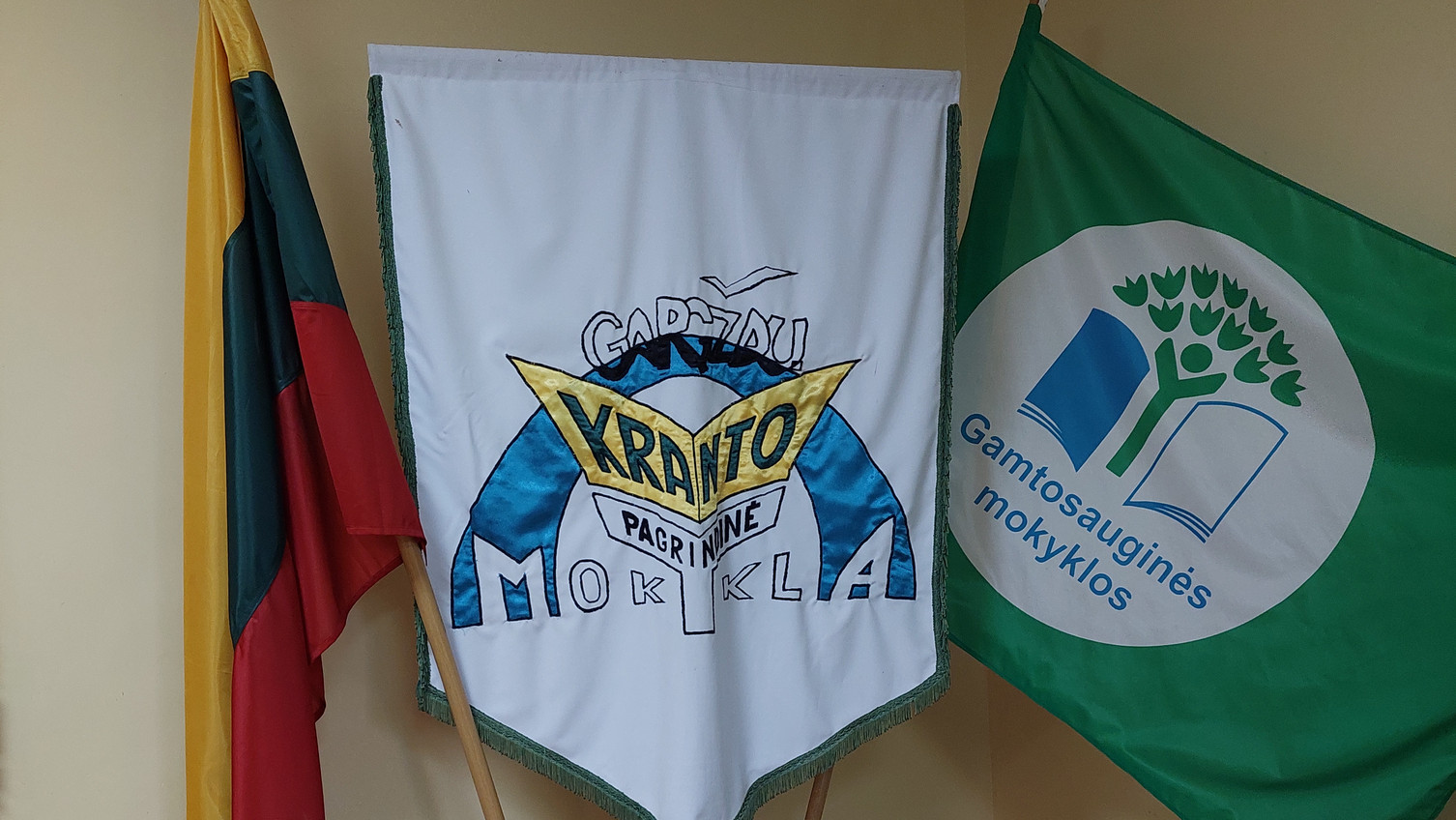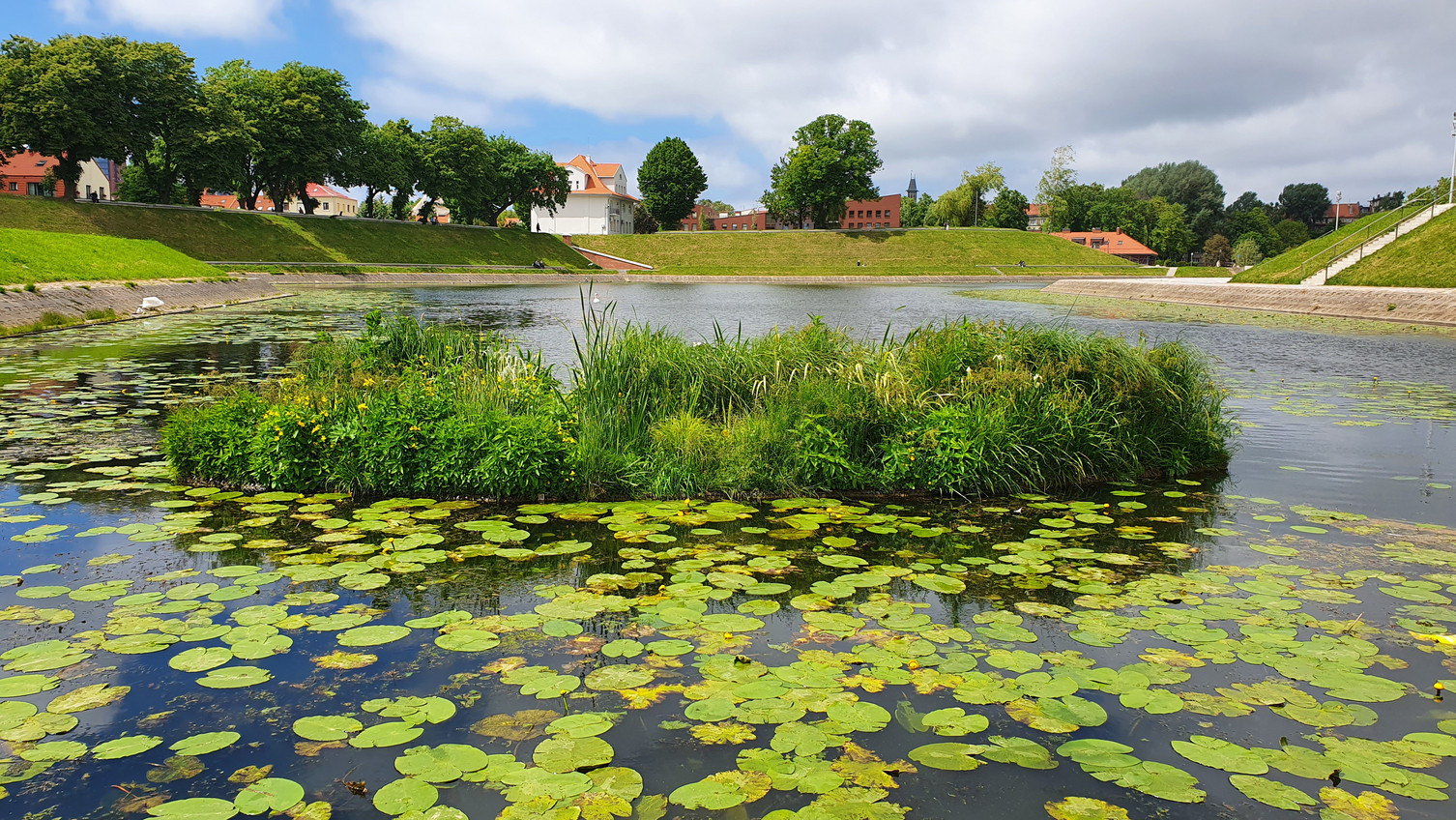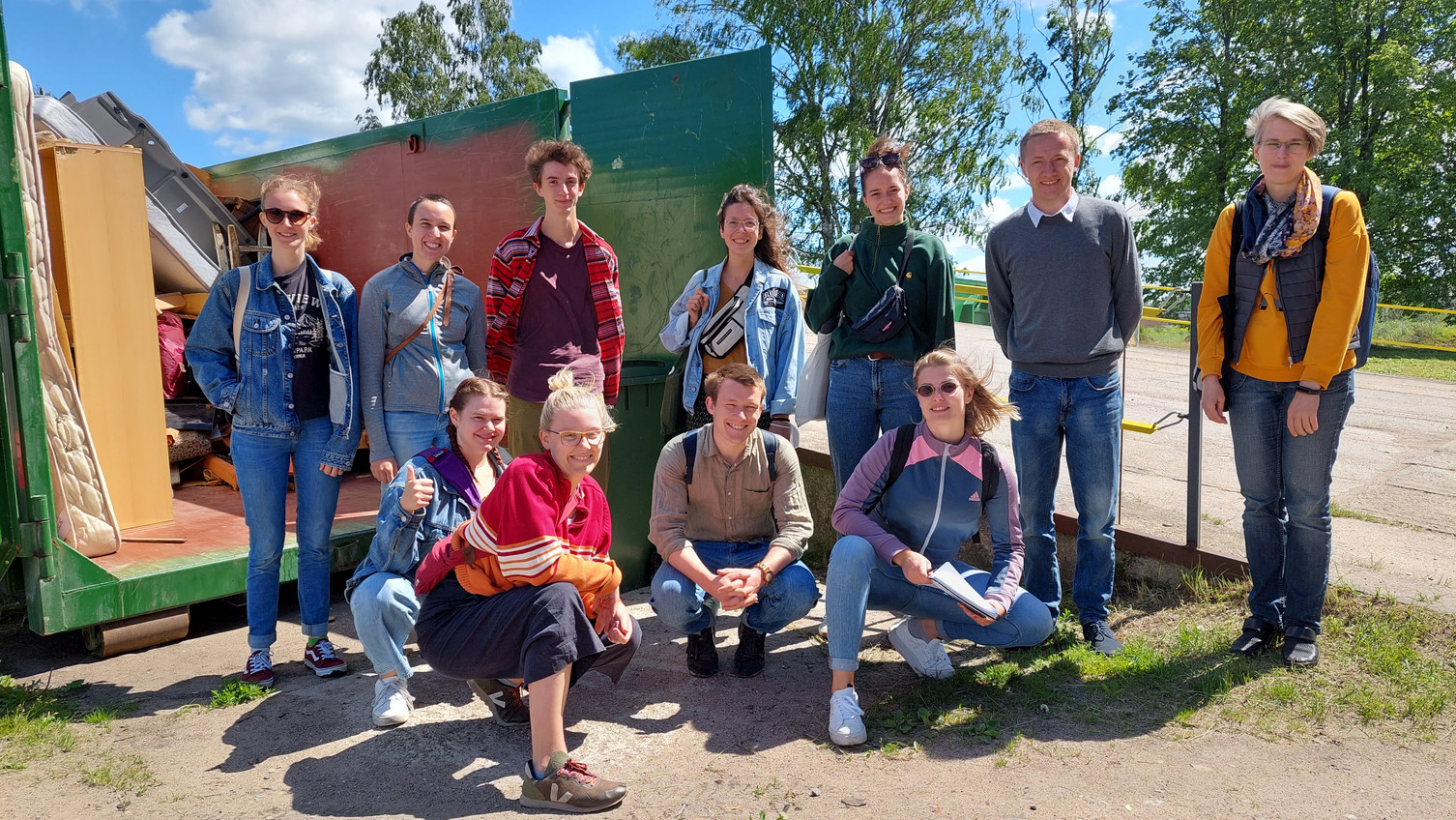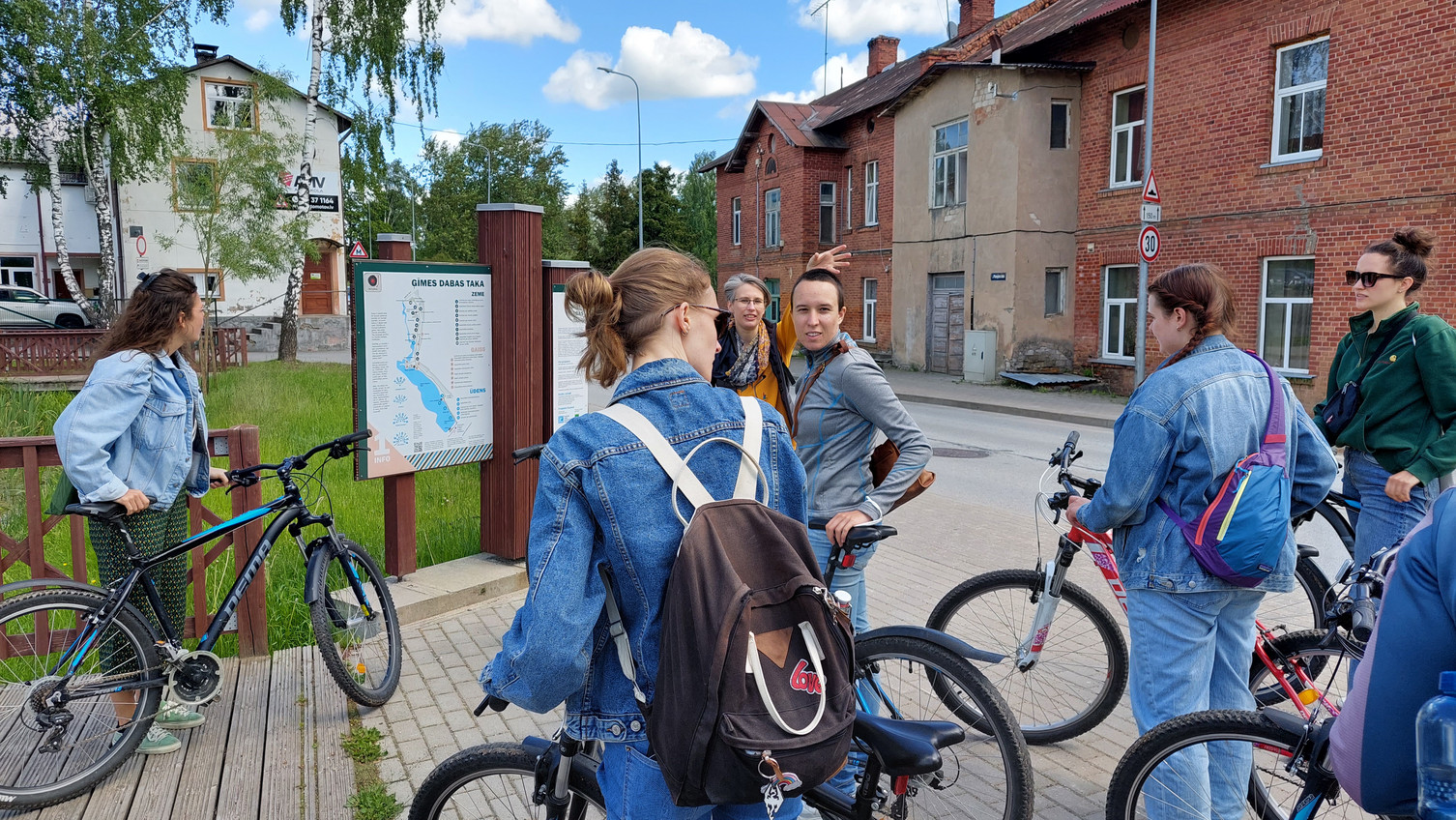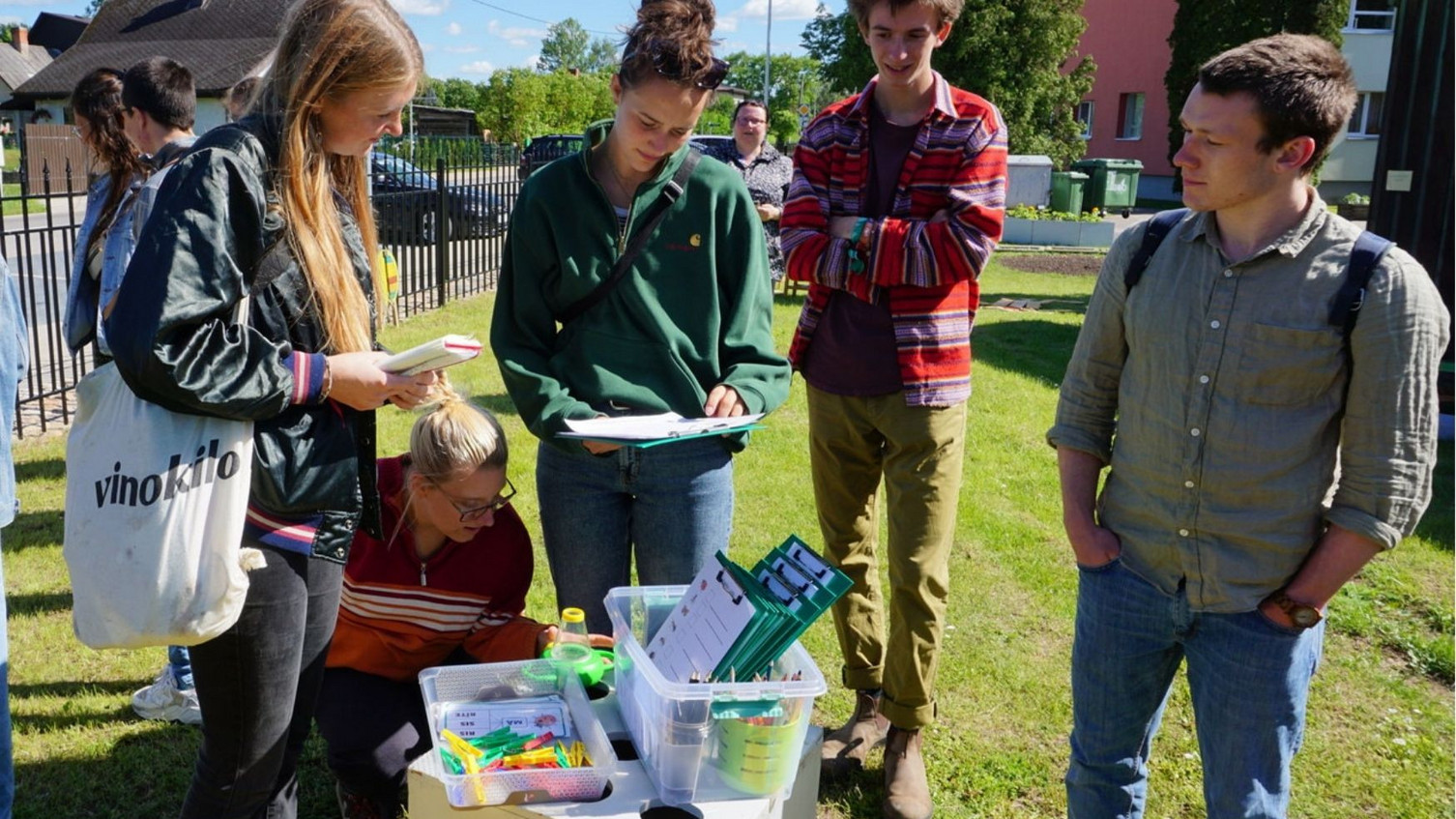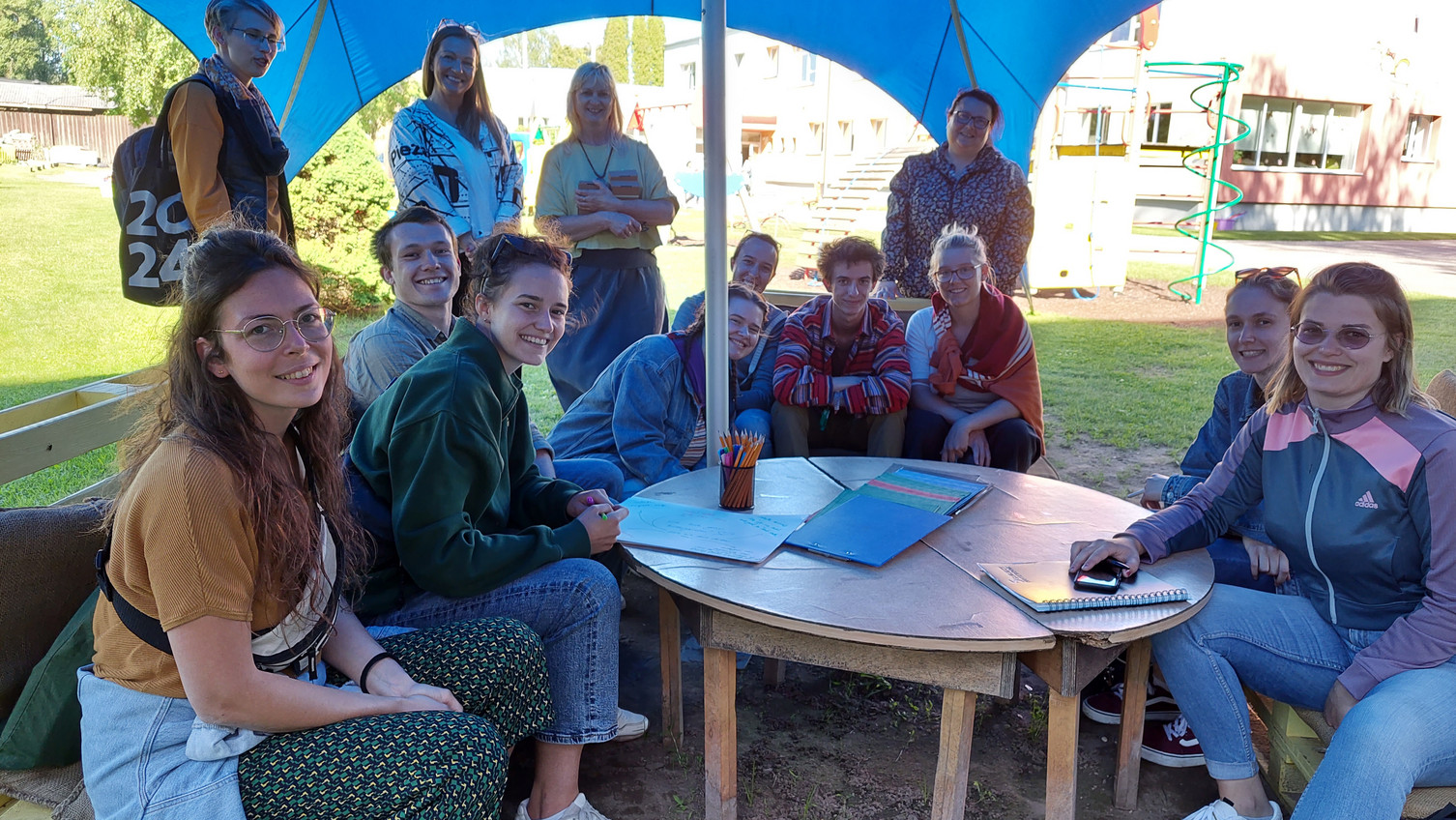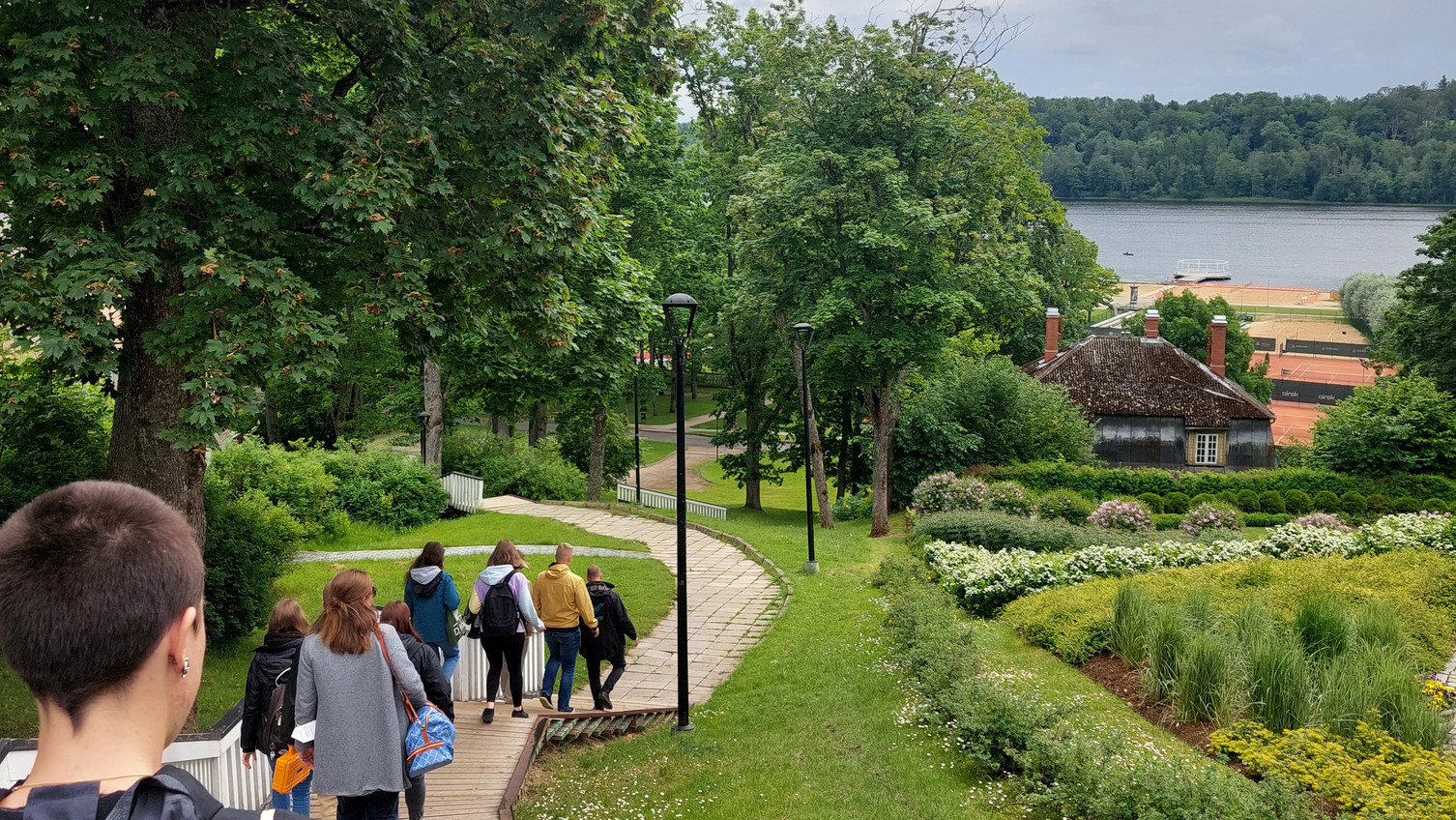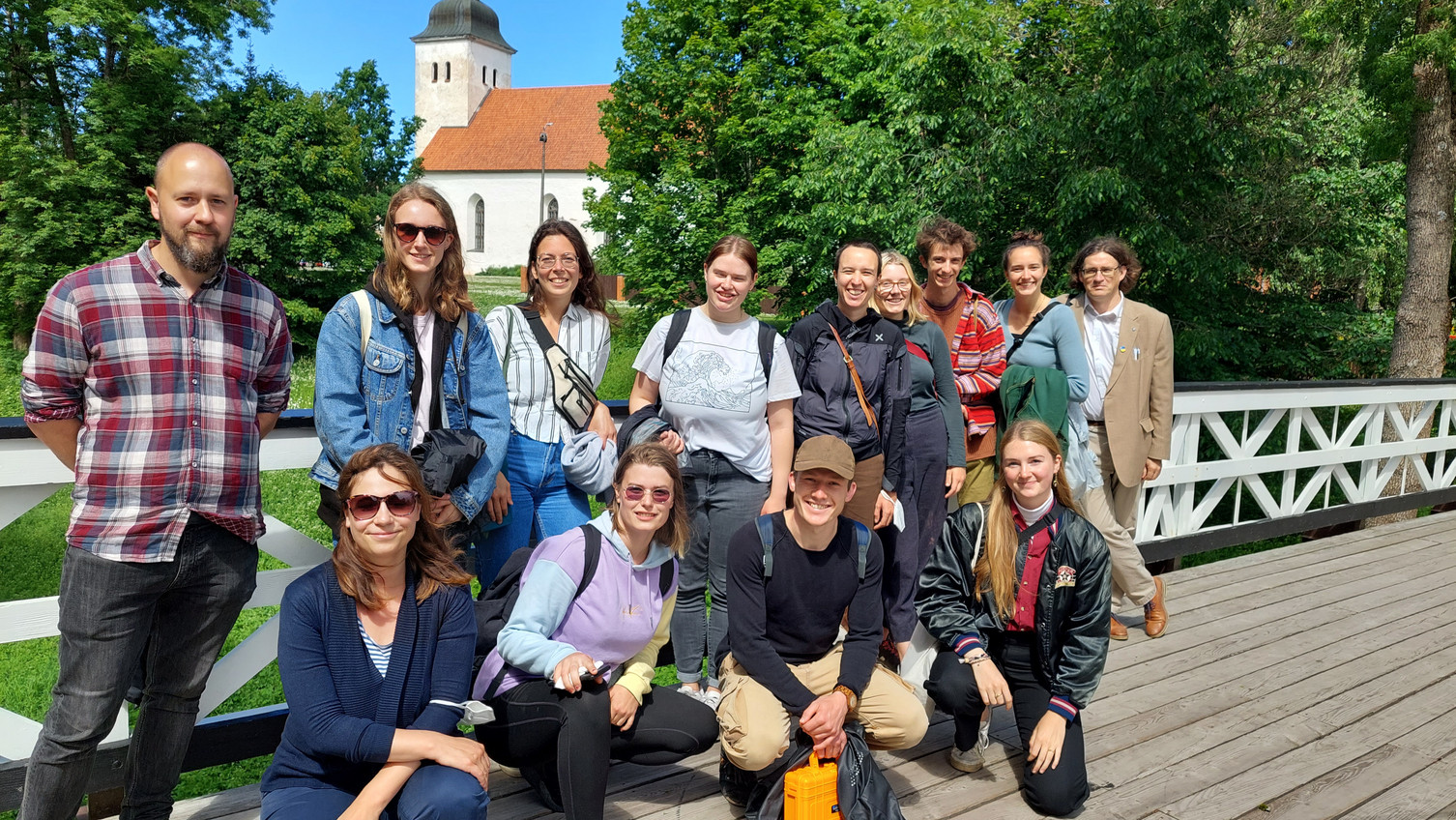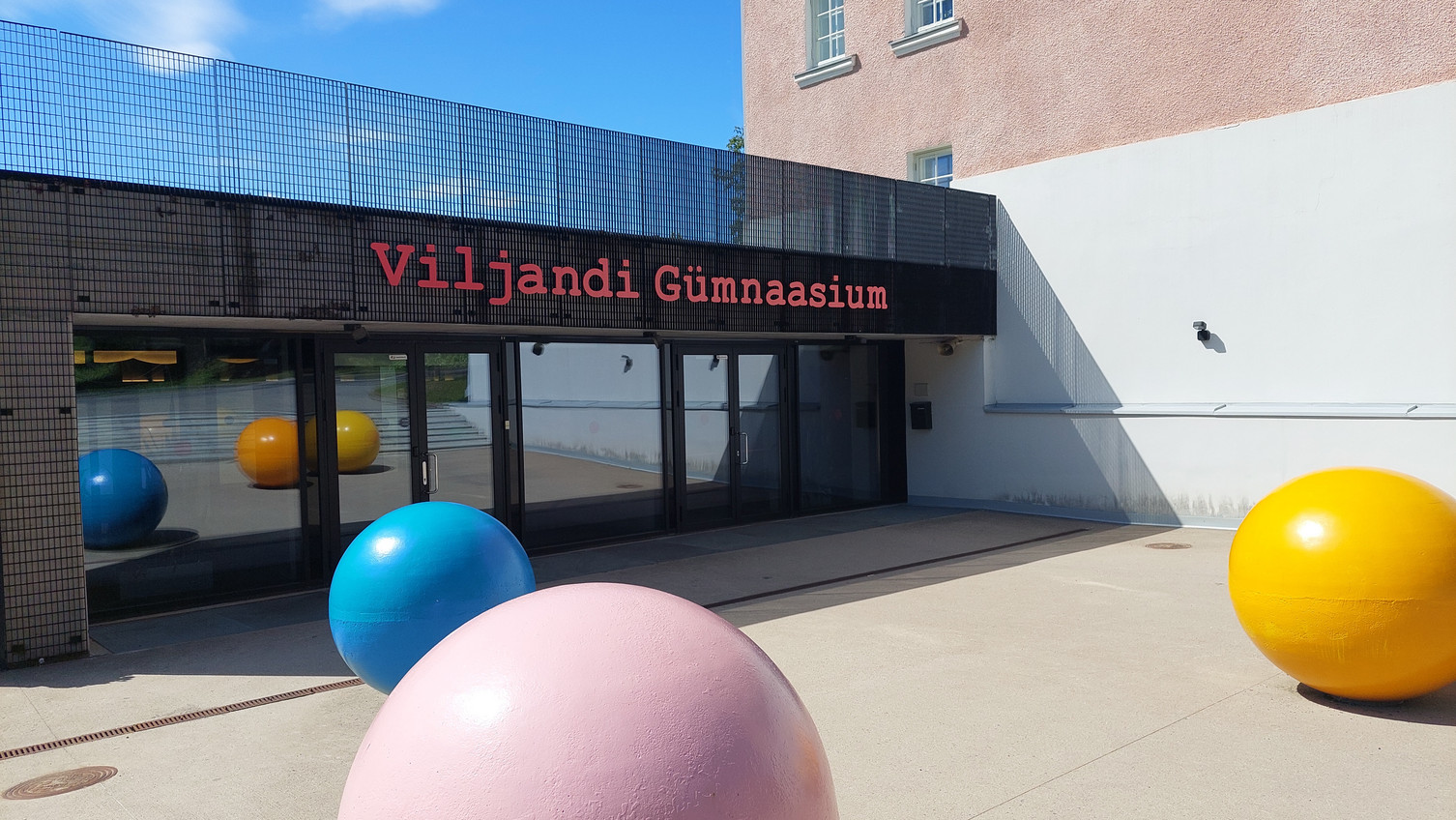Research excursion to the Baltic States
2022-07-21 FROM LÜNEBURG TO THE BALTIC STATES AND BACK – TRANSDISCIPLINARY LEARNING AND EXPERIMENTING FOR A RESILIENT AND SUSTAINABLE COMMUNITY DEVELOPMENT
In mid-June, the time had finally come... 12 students of the Bachelor's programme "Global Environmental and Sustainability Studies" at Leuphana University of Lüneburg, went, as part of the seminar "The Future Cities of Europe - Beyond Lüneburg 2030+", and, under the leadership of Stefanie Drautz, on a one-week research trip to the Baltic States, to do active real-world lab research on site. As part of the DBU project "ESD for 2030: Learning for and in resilient and sustainable communities", the research seminar focuses on real-world labs as transdisciplinary and transformative learning environments in which students develop, test and research integrative sustainability solutions in an experimental setting. Urban sustainability dilemmas and challenges offer students exemplary learning opportunities for developing competencies and experimenting with participatory formats.
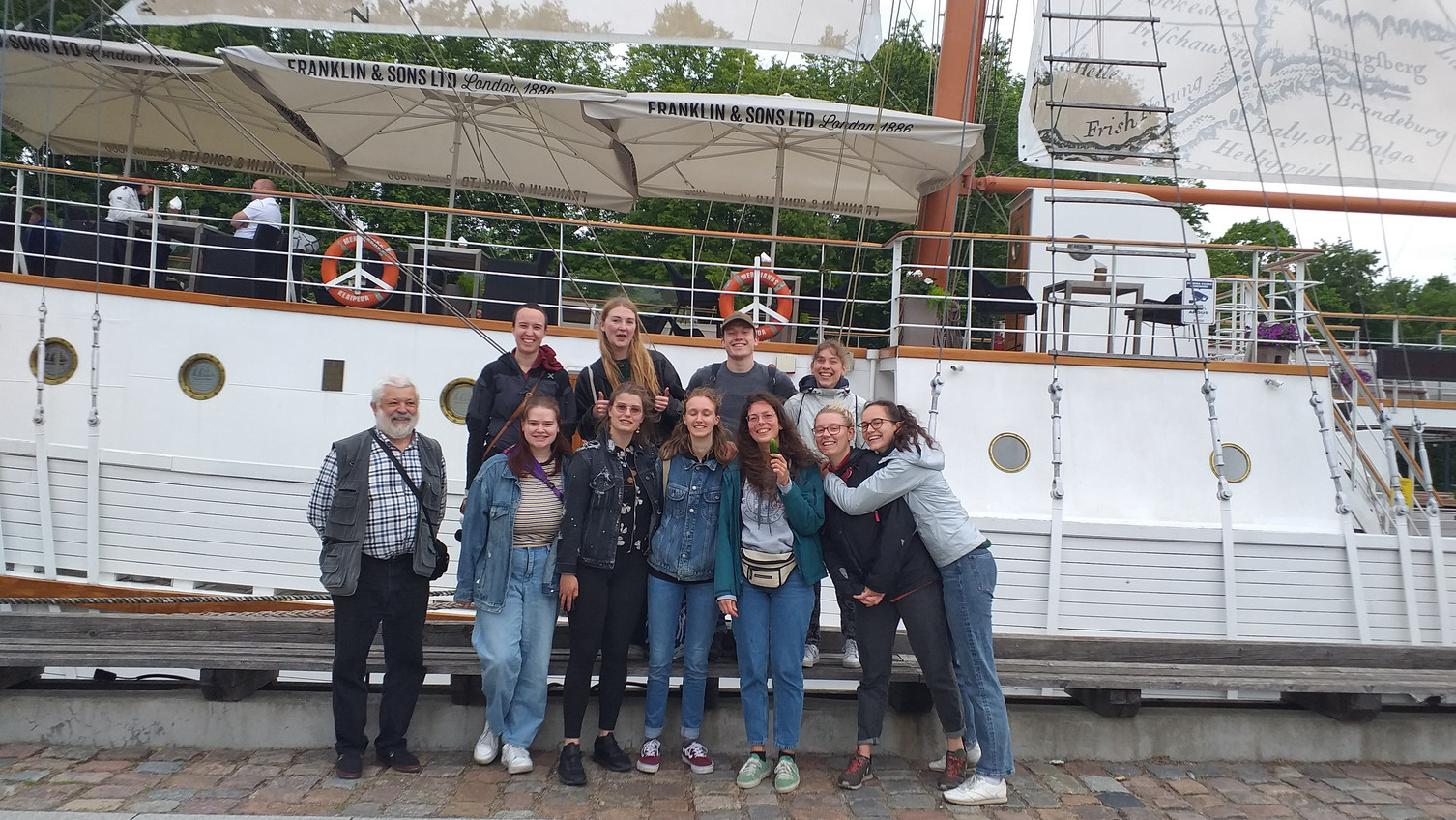 ©Stefanie Drautz ISDL
©Stefanie Drautz ISDL
AHOI BALTICS
The research trip took the students to the universities, schools and municipalities of Lithuania, Latvia and Estonia. In Klaipeda, Lithuania, the students gained insights into the research project "Live Lagoon" of the University of Klaipeda - a project to improve water quality in eutrophic lagoons through the use of floating biodiversity islands. The tour continued with a visit to the Gargzdai Eco-School, which offers and practices inclusive and integrative environmental and nature education in close cooperation with the local government. In Riga, Latvia, the students went on a city exploration and "transect walk", which even led some of them to the Baltic Sea. In Valmiera, in the North of Latvia, the students were offered a full programme of activities. Starting with insights into the city's waste management, followed by a bicycle tour to explore urban planning challenges and development processes (including housing and construction), a presentation on governance processes in local government, a visit to the eco kindergarten "Kracites", which has its focus on promoting and strengthening children's sustainability awareness and connection to nature (e.g. by growing their own food), the day ended with a sustainable city walk through Valmiera. The research trip continued in Viljandi, Estonia, where the students first visited the local government and engaged in an exciting exchange with the staff on sustainable citizen participation and other sustainability challenges. Afterwards, the group of municipal actors and students went on a discovery tour through the city, which led them along the newly created beach, to the landscape conservation area and to Viljandi's castle ruins. The next destination was Viljandi High School, which offered the students new insights into the integration and consolidation of environmental and climate issues in schools. The research day in Viljandi ended with a tour to the environmental office, which offered extended insights into species and environmental protection as well as flood management. The next day, a visit to the University of Tartu was on the agenda. After a general introduction to the university and its activities, the students went on a tour on various laboratories and experiments in the field of natural sciences ("Soil Museum"; "Species Museum") and biotechnology ("Biogas Lab" - use of biomass by "Food Waste"). The following exchange gave the students further insights into the university's sustainability projects and challenges. Back in Riga, the excursion group visited the University of Riga, went on a short city tour with the university project partners, and then closed the day with a joint final evening before next day's journey, back to Lüneburg.
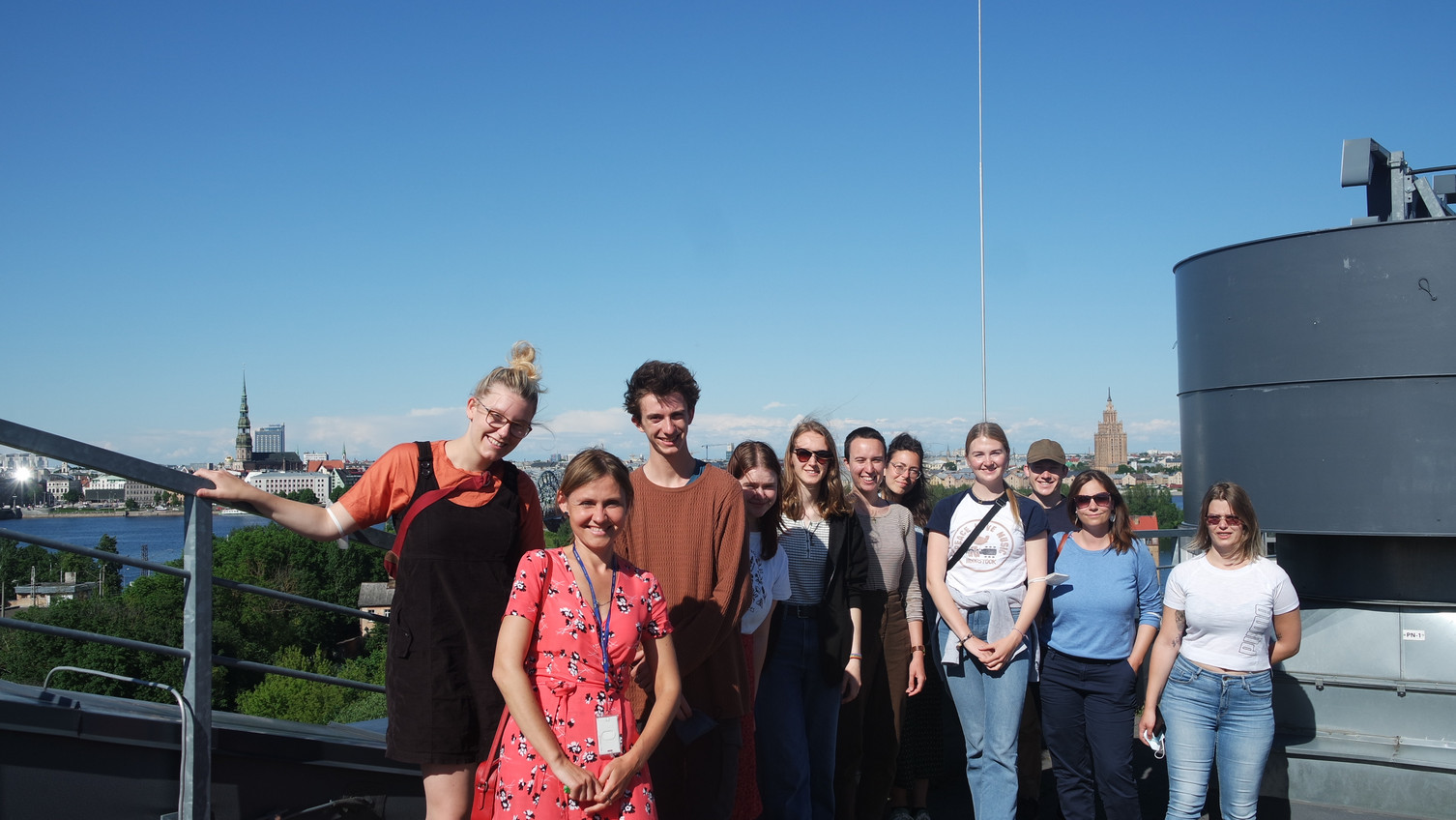 ©Johanna Rossek Leuphana
©Johanna Rossek Leuphana
Back in Lüneburg, the students presented in the research seminar "Future Cities", their overall impressions and findings, gathered during the research excursion, and introduced to their first results from their expert interviews as well as of their excursion learning diaries.
We would like to thank our Baltic project partners and colleagues for the interesting and valuable insights into the "real-world" on site, the big commitment and the extraordinary hospitality!
Special thanks go to our sponsors DBU – German Federal Environmental Foundation in Osnabrück and Leuphana University Lüneburg for making the research stay financially possible!
Our project partners
Universities
- Estonian University of Life Sciences, Tartu, Estonia
- University of Latvia, Riga, Latvia
- Klaipeda University, Lithuania
Municipalities
- Viljandi, Estonia
- Valmiera, Latvia
- Klaipeda, Lithuania
Schools
- Viljandi High School, Viljandi, Estonia
- Privata pamatskola ZALA SKOLA, Valmiera, Latvia
- Valmiera Pargauja Primary School, Valmiera, Latvia
- Vidzeme University of Applied Sciences, Valmiera, Latvia
- Gargzdai "Krantas" Basic School, Klaipeda, Lithuania

